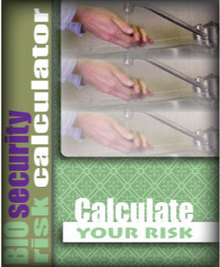Biosecurity is more than a common buzz word but there are those that still balk; thinking it is a high tech or expensive concept. Fact of the matter is, there are plenty of simple steps to reduce the chances of your horse getting sick.

Learning how to keep horses healthy
Biosecurity is more than a common buzz word - fact of the matter is, there are plenty of simple steps to reduce the chances of your horse getting sick.
© 2016 by Equine Guelph
Equine Guelph has the perfect health care tool to help you find out your farmâs biosecurity score. With a simple 10 minute survey, the Biosecurity Risk Calculator, sponsored by Vétoquinol Canada Inc., provides a starting point to protecting your horseâs health with easy to implement practices for infectious disease control.
It is no coincidence, Equine Guelph has named 2016 the Year of Biosecurity. The focus has increased steadily over the years and the horse industry has its unique challenges with the average horse frequently traveling off property or encountering horses that have been off the farm.
In a recent podcast interview, Dr. Steve Roche, principle consultant for ACER consulting, talks about preventing disease from coming onto the farm such as viruses and bacteria.
The concepts are simple: separating new or returning horses so they are not out with lower risk horses who travel far less, not touching mucus areas of horses with dirty hands or after touching unfamiliar horses and not sharing equipment.
Roche was involved in rolling out and following up with the racing industry in Equine Guelphâs âSpread the Word not the Germsâ campaign including: posters, white-board videos and other resources distributed to Ontario race tracks. These Biosecurity resources and more are available on Equine Guelphâs website.
So, in addition to staying on the pulse for disease alerts and planning vaccinations with your veterinarian, check out the Biosecurity Risk Calculator covering nine categories:
- Your Farm
- Horse Movement
- General Protocol
- Feed Storage
- Isolation/Quarantine
- Cleaning/Disinfection
- Vaccination
- Deworming
- Veterinary Care
Find out if there are extra steps your farm could be implementing to help reduce the risk of infectious disease.
About Equine Guelph
Equine Guelph is the horse owners' and care givers' Centre at the University of Guelph in Canada. It is a unique partnership dedicated to the health and well-being of horses, supported and overseen by equine industry groups. Equine Guelph is the epicentre for academia, industry and government - for the good of the equine industry as a whole.
For further information, visit EquineGuelph.ca.
Story: Jackie Bellamy-Zions
